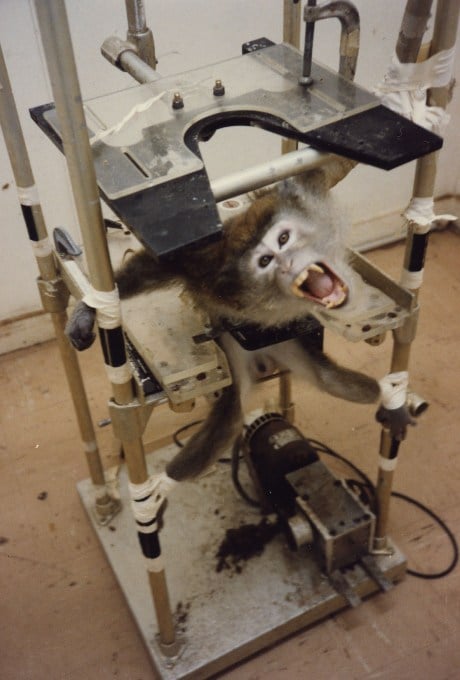If you’ve read the first five blogs in this series (and we hope you have), you probably realize that much of what PETA entities worldwide do—when we’re not shedding our clothes or using humorous gimmicks to provoke discussion of serious animal issues—seldom makes headlines. Take, for example, the work done by the PETA International Science Consortium Ltd., which develops and implements non-animal research methods.

The Science Consortium is funding the development of a system to predict what happens in the human lung following the inhalation of nanomaterials—miniscule particles that can enter the body when we inhale, potentially causing lung problems.
Did you get that? Because there will be a quiz later.
Seriously, this takes experienced and innovative minds—it’s not easy work. It’s not even easy to explain, which is probably why you won’t see flashy news stories about this organization. However, the group’s work is frequently published in scientific journals and covered by chemical-industry publications, as its scientists work to replace the hundreds of millions of animals abused and killed in experiments each year with high-tech animal-free methods.
So far, the Science Consortium and its affiliates have provided more than $5.3 million to develop non-animal testing methods. Here are just some of the projects they’re working on:
- A three-dimensional lung-tissue model that will serve to replace the animals who are forced into narrow tubes and made to inhale toxic chemicals before being killed
- An antitoxin that will be produced without bleeding and abusing horses
- Computer models that are being used worldwide to predict toxicity instead of poisoning animals
- An internationally accepted tissue model that replaces rabbits in corrosion tests that cause painful, oozing ulcers
The Science Consortium also donated a “smoking robot” and three other non-animal inhalation machines to four international laboratories, so that, for the very first time, the facilities can test e-cigarettes and other hazardous substances under conditions that mimic human exposure and don’t use animals.
Science Consortium scientists regularly meet with representatives of the chemical, pesticide, pharmaceutical, medical device, and personal care product industries. For instance, they worked with personal lubricant maker Good Clean Love to persuade the U.S. government to finally accept results from non-invasive skin tests on human volunteers, instead of requiring companies to inject rabbits and guinea pigs with lubricant products.
Thanks in part to our scientists’ work, legislation requiring the Environmental Protection Agency to reduce and replace animal use was recently passed and implemented. The group has also organized and funded training opportunities for regulatory agencies and earned a prestigious award for its efforts to replace animal tests through education and training.
And most importantly, it’s helping to save countless animals’ lives.
Of course, the Science Consortium’s work is possible only because of kind people like you who support PETA or one of our international affiliates. So while we hope you’ve learned something new about the PETA International Science Consortium’s work, we also hope you’re proud of yourself for helping to make it possible!
If you haven’t done so already, or if you wish to increase your support, you can set up monthly gifts to help advance PETA’s efforts. Thank you, as always, for everything that you do for animals.






